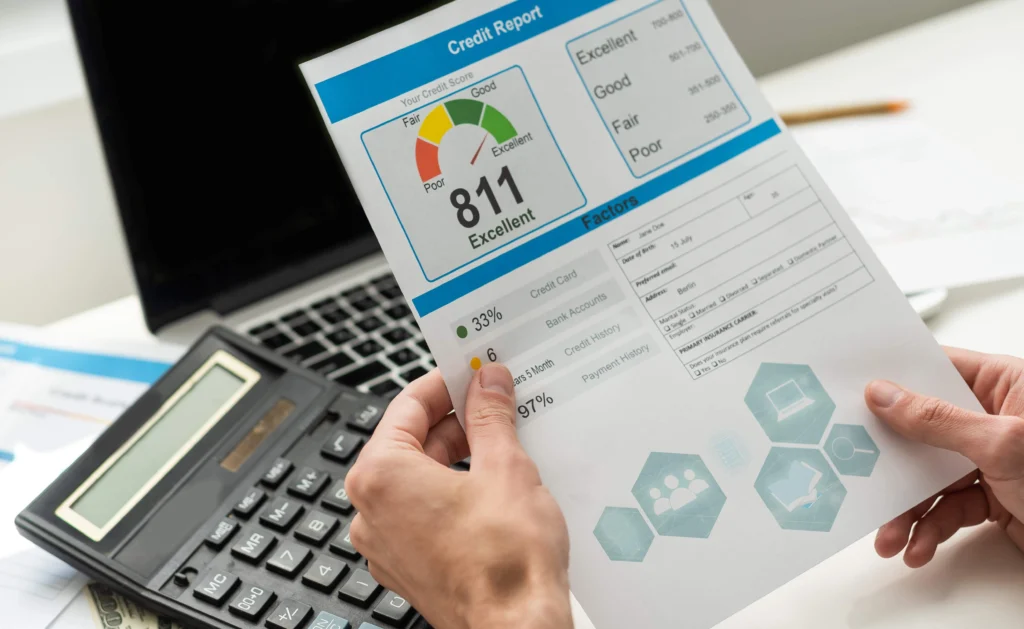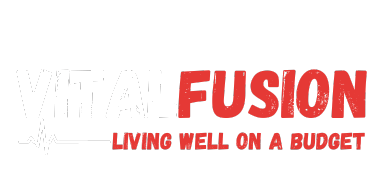Building Credit: Strategies for Improving Your Credit Score
Table of Contents
Establishing a Strong Credit Foundation
Building a solid credit history is crucial for achieving financial stability and unlocking various opportunities in life, such as securing loans, renting an apartment, or even getting a job. The first step in this journey is to establish a strong credit foundation. This involves obtaining a credit card and using it responsibly by making timely payments and keeping your credit utilization low. Additionally, becoming an authorized user on someone else’s credit card can also help build your credit history.
For more on financial habits that can aid in establishing a robust credit score, see our guide on creating a budget that helps you save more.

Monitoring and Maintaining Your Credit Report
Regularly monitoring your credit report is essential for identifying and addressing any errors or discrepancies. You can access your credit report for free from the three major credit bureaus (Experian, Equifax, and TransUnion) once a year through AnnualCreditReport.com. Review your report carefully and dispute any inaccuracies with the credit bureaus. This will help ensure that your credit report accurately reflects your financial history, which is crucial for maintaining a good credit score.
Consider our article on boosting your credit score without costly services for practical insights on maintaining your credit.
Strategies for Improving Your Credit Score
Utilize Credit Mix
Diversifying your credit mix, which includes a combination of different types of credit accounts (e.g., credit cards, auto loans, and mortgages), can positively impact your credit score. This demonstrates to lenders that you can responsibly manage various types of credit.
Keep Credit Utilization Low
Your credit utilization ratio, which is the amount of credit you’re using compared to your total available credit, is a significant factor in determining your credit score. Aim to keep your credit utilization below 30% to maintain a good credit score. Read more on managing debt and credit with our tips for effective debt management.
Make Payments on Time
Payment history is the most influential factor in your credit score. Consistently making on-time payments on all your credit accounts, including credit cards, loans, and bills, is crucial for building and maintaining a strong credit profile.
Increase Credit Limits
Requesting credit limit increases from your credit card issuers can help lower your credit utilization ratio, which can positively impact your credit score. However, be mindful of the potential impact on your credit score when applying for new credit.
Become an Authorized User
If someone with a long, positive credit history adds you as an authorized user on their credit card, it can have a positive impact on your credit score. This allows you to benefit from their good credit history and can help build your credit over time.
Avoid Unnecessary Credit Applications
Each time you apply for new credit, it results in a hard inquiry on your credit report, which can temporarily lower your credit score. Limit the number of credit applications you make, especially if you’re in the process of rebuilding your credit.
For ideas on building credit while managing financial health, consider exploring steps to achieve financial independence.
Patience and Persistence
Building and improving your credit score is a gradual process that requires patience and persistence. By consistently implementing these strategies, you can gradually increase your credit score and unlock the financial opportunities that come with a strong credit profile. Remember, your credit score is a reflection of your financial responsibility, and taking the time to manage it effectively can have a significant impact on your long-term financial well-being.
Understanding Credit Reports and Credit Monitoring
Understanding Your Credit Report
Your credit report is a detailed record of your financial history, and it plays a crucial role in determining your creditworthiness. It includes information about your payment history, credit utilization, credit mix, and more. Understanding your credit report is the first step in building and improving your credit score.
For a deeper look at financial planning, our article on budgeting tips for beginners is a great resource.
What’s Included in a Credit Report?
A typical credit report contains the following information:
- Personal information: Your name, address, Social Security number, and date of birth.
- Credit accounts: A list of all your credit accounts, including credit cards, loans, and mortgages, as well as the account status, credit limit, balance, and payment history.
- Credit inquiries: A record of all the times your credit report has been accessed, either by you or by lenders considering you for credit.
- Public records: Any public records related to your financial history, such as bankruptcies, foreclosures, or court judgments.
- Demographic information: This may include your employment status, income, and other personal details that can impact your creditworthiness.

Monitoring Your Credit
Regularly monitoring your credit report is essential for maintaining a healthy credit score and catching any errors or fraudulent activity. There are several ways to monitor your credit:
Credit Monitoring Services
Many credit monitoring services, both free and paid, offer daily or weekly credit report updates, credit score tracking, and alerts for any changes to your credit file. These services can help you stay on top of your credit health and quickly identify any suspicious activity.
Annual Credit Report
By law, you are entitled to a free credit report from each of the three major credit bureaus (Experian, Equifax, and TransUnion) once every 12 months. You can request your free annual credit reports at AnnualCreditReport.com.
Credit Freezes and Fraud Alerts
You can also take steps to protect your credit by placing a credit freeze or fraud alert on your credit file. A credit freeze restricts access to your credit report, making it harder for identity thieves to open new accounts in your name. A fraud alert requires lenders to take extra steps to verify your identity before extending credit.
Improving Your Credit Score
Once you understand your credit report, you can take steps to improve your credit score. Some effective strategies include:
Paying Bills on Time
Payment history is the most important factor in your credit score, so making all your payments on time is crucial. Set up automatic payments or payment reminders to ensure you never miss a due date.
Reducing Debt and Credit Utilization
Try to keep your credit card balances low in relation to your credit limits. Aim to use no more than 30% of your available credit to maintain a good credit utilization ratio.
Diversifying Your Credit Mix
Having a mix of different types of credit accounts, such as credit cards, loans, and mortgages, can positively impact your credit score.
To learn more, our article on increasing flexibility in your budget offers ideas on stretching your finances to align with credit goals.
Monitoring Your Credit Regularly
Regularly reviewing your credit report and credit score can help you identify and address any issues, as well as track your progress as you work to improve your credit.
By understanding your credit report, monitoring your credit, and implementing strategies to build and maintain a strong credit score, you can take control of your financial future and access the credit you need to achieve your goals.

Responsible Credit Card Usage and Debt Management
Building Credit Responsibly
Responsible credit card usage is essential for building and maintaining a strong credit score. The key is to use your credit cards in a way that demonstrates your ability to manage debt effectively. This includes making on-time payments, keeping your credit utilization low, and avoiding excessive debt.
Establish a Credit History
One of the most important steps in building credit is to establish a credit history. This can be done by applying for a credit card and using it responsibly. When you make on-time payments and keep your credit utilization low, you demonstrate to lenders that you are a reliable borrower, which can help improve your credit score over time.
Understand Credit Utilization
Credit utilization, or the amount of your available credit that you are using, is an important factor in your credit score. Experts recommend keeping your credit utilization below 30% of your total available credit. This means that if you have a credit limit of $10,000, you should aim to keep your balance below $3,000.
Make Payments on Time
Payment history is the most important factor in your credit score, accounting for 35% of your score. To build and maintain a strong credit score, it’s essential to make all of your credit card payments on time. This includes making at least the minimum payment each month, and ideally paying the full balance to avoid interest charges.
Effective Debt Management
In addition to responsible credit card usage, effective debt management is also crucial for building and maintaining a strong credit score. This includes strategies for paying down existing debt and avoiding taking on new debt.
Create a Debt Repayment Plan
If you have existing credit card debt, it’s important to create a debt repayment plan. This may involve prioritizing high-interest debt, consolidating multiple debts into a single lower-interest loan, or negotiating with creditors for better terms. By paying down your debt consistently, you can improve your credit utilization and demonstrate your ability to manage debt effectively.
Avoid Excessive Debt
It’s important to avoid taking on more debt than you can comfortably manage. This means being mindful of your spending and not using credit cards to finance purchases that you can’t afford to pay off in full each month. Additionally, it’s a good idea to maintain a low debt-to-income ratio, which is the amount of your monthly debt payments compared to your monthly income.
Monitor Your Credit Report
Regularly monitoring your credit report is an important part of effective debt management. By checking your credit report for errors or signs of fraud, you can ensure that your credit score accurately reflects your credit history. Additionally, monitoring your credit report can help you identify opportunities to improve your credit, such as by disputing errors or negotiating with creditors.
Responsible credit card usage and effective debt management are essential for building and maintaining a strong credit score. By establishing a credit history, understanding credit utilization, making on-time payments, and effectively managing existing debt, you can take steps to improve your financial health and achieve your long-term financial goals.
Achieving Financial Stability through Effective Credit Practices
Building a Strong Credit Profile
Your credit score is a crucial factor in determining your financial well-being. It not only affects your ability to secure loans, credit cards, and even housing, but it also plays a significant role in the interest rates you’ll be offered. Building a strong credit profile takes time and diligence, but the rewards are well worth the effort.
One of the fundamental steps in building credit is to obtain a credit card and use it responsibly. Make sure to pay your bills on time and keep your credit utilization (the amount of credit you’re using compared to your total available credit) low. This demonstrates to lenders that you’re a reliable borrower, and it can help boost your credit score over time.
Monitoring and Improving Your Credit Score
Regularly monitoring your credit report is essential to maintaining a healthy credit profile. You’re entitled to a free credit report from each of the three major credit bureaus (Equifax, Experian, and TransUnion) once per year. Review your report carefully for any errors or discrepancies and dispute them if necessary.
In addition to monitoring your credit report, it’s important to understand the factors that contribute to your credit score. Payment history, credit utilization, length of credit history, and types of credit used all play a role in determining your score. By focusing on these factors and making adjustments as needed, you can work to improve your credit score over time.
Strategies for Effective Debt Management
Effective debt management is another crucial component of achieving financial stability. If you have outstanding debts, it’s important to develop a plan to pay them off systematically. This may involve prioritizing high-interest debts, negotiating with creditors for lower interest rates, or consolidating multiple debts into a single, more manageable payment.
Strategies for Effective Debt Management
Here are some strategies to help you manage your debts effectively:
- Create a budget: Develop a detailed budget that outlines your income, expenses, and debt payments. This will help you identify areas where you can cut back and allocate more funds towards debt repayment.
- Prioritize high-interest debts: Focus on paying off debts with the highest interest rates first, as these are typically the most expensive. Once these debts are paid off, you can then redirect those funds towards other debts.
- Negotiate with creditors: If you’re struggling to make payments, reach out to your creditors and see if they’re willing to lower your interest rates or offer more favorable repayment terms.
- Consolidate debts: Consider consolidating multiple debts into a single, lower-interest loan. This can simplify your payments and potentially save you money in the long run.
- Avoid new debt: While you’re working on paying off existing debts, it’s important to avoid taking on any new debt. This will help you maintain focus and progress towards your financial goals.
The Importance of Financial Education
It’s important to recognize the value of financial education in achieving long-term financial stability. By learning about budgeting, saving, investing, and other essential personal finance topics, you can make informed decisions that will serve you well throughout your life.
There are many resources available, from personal finance books and online courses to workshops and seminars offered by financial institutions and community organizations. Take the time to educate yourself and develop a solid understanding of the principles of financial management.
Achieving financial stability through effective credit practices is a journey, not a destination. By building a strong credit profile, monitoring and improving your credit score, managing your debts effectively, and continuously educating yourself, you can take control of your financial future and enjoy the peace of mind that comes with financial security.
Navigating the Credit Landscape: Tips and Considerations
Building a Strong Credit Foundation
Establishing and maintaining a healthy credit profile is crucial for financial success in today’s world. Your credit score is a key factor that lenders, landlords, and even employers consider when evaluating your creditworthiness. By understanding the credit landscape and taking proactive steps, you can navigate this terrain and improve your overall financial well-being.
Understand the Basics of Credit
Before you can start building and improving your credit, it’s essential to understand the fundamentals of credit. Your credit score is a numerical representation of your creditworthiness, ranging from 300 to 850. This score is calculated based on factors such as your payment history, credit utilization, length of credit history, and types of credit used.
Monitor Your Credit Report Regularly
Regularly reviewing your credit report is crucial for identifying and addressing any errors or discrepancies. You are entitled to receive a free copy of your credit report from each of the three major credit bureaus (Experian, Equifax, and TransUnion) once a year. Take the time to carefully review your report and dispute any inaccuracies you find.
Building Credit from Scratch
If you’re starting from scratch with no credit history, there are several strategies you can employ to begin building your credit profile.
Become an Authorized User
One effective way to establish credit is to become an authorized user on someone else’s credit card, such as a parent or spouse. As an authorized user, their credit history and payment patterns will be reflected on your credit report, helping to build your own credit history.
Secure a Secured Credit Card
Secured credit cards are designed to help individuals with limited or poor credit build their credit history. These cards require a refundable security deposit, which becomes your credit limit. By making timely payments on a secured card, you can demonstrate responsible credit behavior and gradually improve your credit score.
Apply for a Credit-Builder Loan
Credit-builder loans are small personal loans that are designed to help individuals with no or poor credit establish a payment history. The loan amount is typically held in an escrow account, and as you make on-time payments, the loan amount is reported to the credit bureaus, helping to build your credit profile.
Maintaining and Improving Credit
Once you’ve established a credit history, it’s essential to continue practicing good credit habits to maintain and improve your credit score.
Utilize Credit Responsibly
One of the most important factors in maintaining a good credit score is using credit responsibly. This means keeping your credit card balances low, making payments on time, and avoiding maxing out your credit limits.
Diversify Your Credit Mix
Having a diverse mix of credit types, such as credit cards, installment loans, and mortgage loans, can also positively impact your credit score. This demonstrates to lenders that you can handle various types of credit responsibly.
Monitor and Dispute Errors
Continuously monitoring your credit report and addressing any errors or inaccuracies is crucial for maintaining a healthy credit profile. If you notice any discrepancies, be sure to dispute them with the credit bureaus to ensure the information on your report is accurate.
Remember, building and maintaining a good credit score takes time and diligence, but the long-term benefits can be significant. By understanding the credit landscape and implementing these strategies, you can navigate the path to financial success.
Conclusion
Building and maintaining a strong credit score is a crucial aspect of financial well-being. By implementing the strategies covered in this article, such as understanding your credit reports, using credit cards responsibly, and managing debt effectively, you can take proactive steps to improve your credit score and achieve financial stability.
Regularly monitoring your credit reports and addressing any errors or inaccuracies is essential in maintaining a accurate credit history. Utilizing credit monitoring services can provide valuable insights and help you stay informed about the factors influencing your credit score.
Responsible credit card usage, including making payments on time, keeping balances low, and diversifying your credit mix, can have a significant positive impact on your credit score. Developing healthy debt management practices, such as creating a budget, prioritizing debt repayment, and seeking professional guidance when needed, can further contribute to your financial well-being.
By consistently applying the principles outlined in this article, you can navigate the credit landscape with confidence and work towards building a strong, reliable credit profile. This, in turn, can open doors to better financial opportunities, lower interest rates, and a greater sense of financial security.
Remember, improving your credit score is a journey that requires patience, diligence, and a commitment to responsible financial practices. Embrace the strategies discussed here, and you’ll be well on your way to achieving your financial goals and securing a brighter financial future.






